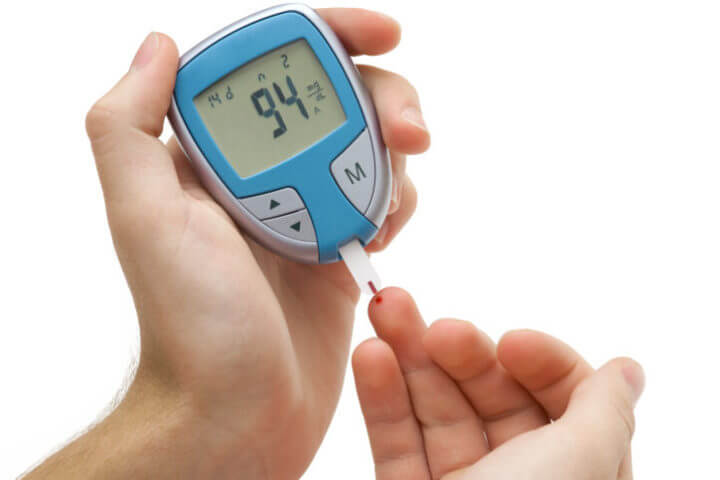Zinc is a micronutrient that plays a very important role in our body. It is usually used to treat a wide variety of conditions, although the definitive guide to zinc supplements should always be considered to avoid unwanted effects.
Research suggests that taking zinc in any of its forms can boost the health of your immune system, stabilize blood sugar levels, and increase the quality of your eyes, skin, and overall heart.
For all these reasons, find out all you need to know if you are thinking about starting zinc for the first time .

Types of zinc supplements
When choosing your zinc supplements, you should take into account the following definitive guide, since each one will affect your health in different ways.
- Zinc gluconate : it is one of the most common forms that you can find in a pharmacy, it is usually used in medicines for colds and the like.
- Zinc Acetate – Like gluconate, zinc acetate is found in lozenges commonly used to reduce cold symptoms and speed an individual’s recovery.
- Zinc Sulfate : Not only does it help prevent your zinc deficiency, it has also been shown to reduce acne in many patients.
- Zinc Picolinate – Some experts claim that this form of zinc is better absorbed by your body than others.
- Zinc orotate : this form is linked to orotic acid, a compound often used in supplements available in common pharmacies.
- Zinc citrate: This type of zinc has been shown to be able to be absorbed as effectively as zinc gluconate, but unlike zinc, its taste is much less sour.

What type of zinc is best?
Gluconate is the most widely available form of zinc in the world and also has a cost according to its effectiveness, so it may be a good option for you. However, if you have a bigger budget, it would be better to invest in zinc picolinate, since it is better absorbed.
There are several options to administer it, either through capsules, tablets or pills. However, according to some studies, the administration of zinc through nasal sprays is related to the loss of smell (Alexander and Davidson, 2006).

4 potential benefits of zinc
1. It can improve your immune function
A compilation of about 18 studies evaluated the effects of zinc on common colds and found that consuming zinc in the first 24 hours that symptoms appear reduces the duration of symptoms in an average of 1 day (Singh and Das, 2013).
On the other hand, zinc has the power to function as an antioxidant, reducing inflammation and protecting you from chronic diseases such as heart disease, cancer and diabetes.

2. Improve your blood sugar control
The influence of zinc on your blood sugar levels is incredible due to its role in insulin secretion. Insulin is that hormone whose task is to transport sugar from the bloodstream to the tissues of your body.
One study has reported that zinc supplements are truly effective in controlling blood sugar levels in patients who already have diabetes (Jayawardena et al., 2012).

3. Fight acne
Some professionals recommend taking zinc to reduce the appearance of acne and promote healthy skin. Additionally, zinc sulfate has been shown to be very effective in reducing severe acne symptoms .
In fact, a 3-month study of 332 participants found that taking 30 milligrams of elemental zinc, the actual amount of zinc in a supplement, can treat inflammatory acne (Dreno et al., 2001).

4. Can promote heart health
You should take your heart health seriously, and for that you should take a little zinc. Some research claims that this supplement has the power to improve some heart disease risks and even lower triglyceride and cholesterol levels .
A study of 40 young-aged women has shown that higher zinc intake is consistent with lower levels of systolic blood pressure (Kim, 2013). However, the effects of these supplements on blood pressure need to be further investigated.

Recommended amount of zinc
The right amount of zinc for you really depends on the type of zinc you consume, as each has a different percentage of elemental zinc. For example, zinc sulfate contains approximately 55% zinc; therefore 220 milligrams of sulfate is equivalent to 50 milligrams of zinc.
You can easily find this out by reading the label on your supplement and doing the math yourself. However, it is recommended that adults ingest 15 to 30 milligrams of elemental zinc per day . However, higher doses have been used in special cases, such as when a person needs to treat a medical condition such as diarrhea, acne, or respiratory infections.
In any case, never exceed 40 milligrams a day; Unless recommended by your doctor; due to its serious side effects.

Zinc Safety
Used in the correct way, zinc supplements are highly beneficial ; But if you deliberately decide to exceed 40 mg daily, you could experience symptoms such as a high fever, cough, headaches, and fatigue.
Additionally, zinc can interfere with your body’s ability to absorb copper, which can lead to a long-term deficiency of the mineral. Some research also assures that zinc prevents the proper absorption of antibiotics , reducing their effectiveness.
If you feel that something is wrong with your supplements, reduce your intake of them or consult a professional to obtain a reliable diagnosis.

Conclution
The various benefits of zinc supplements are easily verifiable in our definitive guide. So do not hesitate to at least try it and give it a chance to improve your performance and health. In the event of any inconvenience with taking this supplement, you should consult with a health professional.
References
- Alexander, TH and Davidson, TM (2006). Intranasal zinc and anosmia: the zinc-induced anosmia syndrome. The Laryngoscope . doi: 10.1097 / 01.mlg.0000191549.17796.13
- Dreno, B., Moyse, D., Alirezai, M., Amblard, P., Auffret, N., Beylot, C.… Poli, F. (2001). Multicenter randomized comparative double-blind controlled clinical trial of the safety and efficacy of zinc gluconate versus minocycline hydrochloride in the treatment of inflammatory acne vulgaris. Dermatology . doi: 10.1159 / 000051728
- Jayawardena, R., Ranasinghe, P., Galappatthy, P., Malkanthi, R., Constantine, G. and Katulanda, P. (2012). Effects of zinc supplementation on diabetes mellitus: a systematic review and meta-analysis. Diabetology & metabolic syndrome. doi: 10.1186 / 1758-5996-4-13.
- Kim, J. (2013). Dietary zinc intake is inversely associated with systolic blood pressure in young obese women. Nutrition Research and Practice. doi: 10.4162 / nrp.2013.7.5.380
- Singh, M. and Das, RR (2013). Zinc for the common cold. The Cochrane database of systematic reviews . doi: 10.1002 / 14651858.CD001364.pub4.
